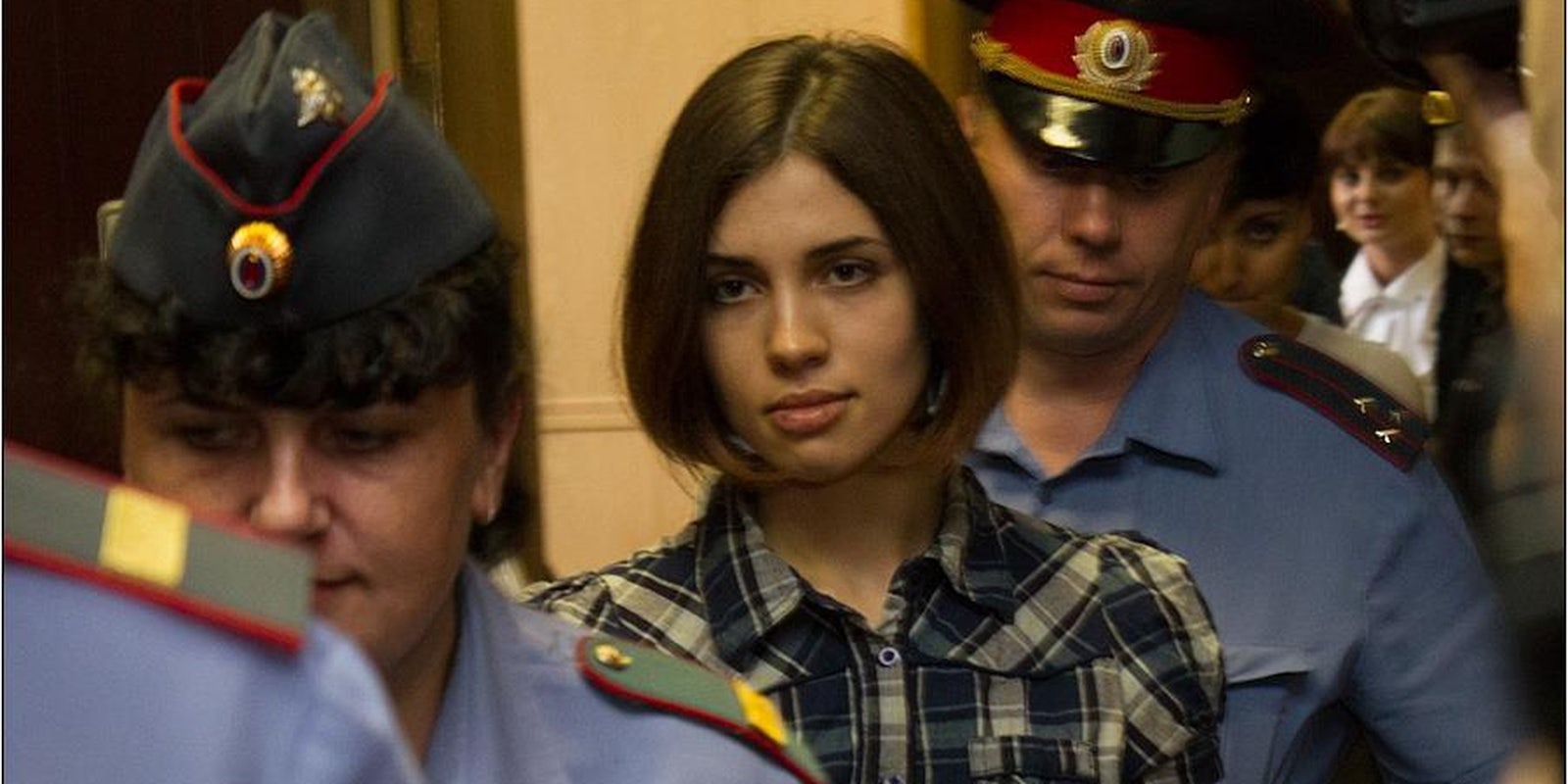Two jailed members of Russian feminist punk group Pussy Riot were finally freed Monday, after serving most of a grueling two-year sentence for “hooliganism” that sparked an international crusade for their amnesty.
Russian president Vladimir Putin, possibly to ease diplomatic tensions during the upcoming Olympics, freed band members Nadezhda Tolokonnikova and Maria Alyokhina along with 30 environmental activists and other political prisoners on Thursday—but not before saying he “pitied” the two women for “disgraceful behavior that has degraded the dignity of women.”
In return, Tolokonnikova, 24, whose time in prison included multiple hunger strikes that left her hospitalized on different occasions, lashed out at Putin, calling him weak for waiting until the two women had served most of their sentence before freeing them.
“I would like to see Putin as a clement leader, but he is far from it,” Tolokonnikova told NBC News after her release.
“I see it as a weakness because to free us when we have until two months left is not much after we have served two years. I would see it as a strength if he would free other political prisoners.”
Alyokhina echoed the statement, calling the move a “PR stunt” and reportedly stating that she would have rejected the Amnesty if she could.
Tolokonnikova, Alyokhina, and a third group member, Yekaterina Samutsevich, were arrested after an artistic protest against Putin inside Moscow’s Cathedral of Christ the Saviour in February 2012. The protest included a song, “Punk Prayer,” that criticized the church’s support of Putin’s presidency.
The three were held without bail until July 2012, then sentenced until March 2014. Samutsevich was released in October 2013 on probation, while Tolokonnikova and Alyokhina continued to endure harsh prison camp conditions. After ending a hunger strike in October, Tolokonnikova briefly went “missing” from the Russian penal system in November while being transferred to a Siberian hospital, inciting Amnesty International to identify her as a political “prisoner of conscience” and urge her release. The band’s imprisonment attracted international protest and attention from celebrities around the world, including Paul McCartney and philosopher Slavoj Žižek.
The newly freed prisoners quickly got in touch with each other after their release:
Freedom is a cigarette and a phone call. “It’s Nadia, you twit!” Nadezhda calls Masha Alyokhina – @RolandOliphant pic.twitter.com/GYtTzV4Eko
— NewsBreaker (@NewsBreaker) December 23, 2013
But Tolokonnikova may not be interested in getting the group back together. “An artist is not interested in repeating themselves,” she told NBC. “I am now a politician. I would like to create a human rights organization that will help political prisoners.”
Amnesty International likewise found little to celebrate. “It is difficult to welcome the amnesty law adopted by the Russian Duma today,” the organization’s Europe and Central Asia director, John Dalhuisen, said in a statement Wednesday. “While it will no doubt benefit many victims of injustice, it will not erase the criminal records of those wrongfully convicted.”
Photo via Wikipedia


